Tenof 300 mg Tablets
$55.00 – $157.00
| Name | Action |
|---|---|
30 Tablets, $1.85/unit $55.00 | |
60 Tablets, $1.80/unit $108.00 | |
90 Tablets, $1.75/unit $157.00 | |
Want to order in bulk / B2B price ? | Send Inquiry |


| SKU | 11376 |
| Manufacturer | Hetero Drugs Ltd |
| Categories | Anti HIV |
| Delivery Time | 10 - 14 Working Days |
| Strength | 300mg |
Introduction to Tenof 300 mg Tablets
Tenof 300 mg Tablets are a medication used primarily in the treatment of HIV (human immunodeficiency virus) infection and chronic hepatitis B. The active ingredient in Tenof is tenofovir disoproxil fumarate, an antiviral drug that belongs to a class of medications known as nucleotide reverse transcriptase inhibitors (NRTIs).
Tenofovir works by inhibiting the activity of reverse transcriptase, an enzyme that HIV and hepatitis B viruses need to replicate. By blocking this enzyme, Tenof reduces the ability of the virus to reproduce and spread in the body. This helps to lower viral loads, maintain immune system function, and slow the progression of the disease.
Tenof 300 mg Tablet is not recommended for use in children less than 18 years due to a lack of data on safety and efficacy. The medicine should be used during pregnancy only when clearly needed. Consult your doctor if you are breastfeeding before taking this medicine. If you have an HIV infection, it is not recommended to breastfeed, as the Human immunodeficiency virus (HIV) may transfer to the baby through breastmilk.
Uses of Tenof 300 mg Tablet
- Treatment of Chronic hepatitis B virus (HBV) infection
- Treatment of HIV infection
How Does Tenof 300 Works?
Tenof 300mg may help to increase the number of CD4 (T) cells in your blood which help fight off other infections. Reducing the amount of HIV and increasing CD4 (T) cell count may improve your immune system. This may reduce the risk of death or infections that can happen when your immune system is weak (opportunistic infections).
Tenof 300 mg Tablet contains a combination of two active ingredients: Tenofovir Disoproxil Fumarate (TDF) and Emtricitabine. This combination is used in the treatment of HIV (Human Immunodeficiency Virus) infection. The medications work together to inhibit the replication of the virus within the body.
Here’s how Tenofovir 300 mg Tablet works:
- Tenofovir Disoproxil Fumarate (TDF)
- Emtricitabine
Side Effects Tenof 300 mg Tablet
Common Side Effects
- Nausea
- Diarrhea
- Headache
- Abdominal Pain
- Fatigue
- Dizziness
Serious Side Effects
- Kidney Problems
- Bone Density Loss
- Lactic Acidosis
- Hepatotoxicity
- Pancreatitis
Rare Side Effects
- Fanconi Syndrome
- Severe Skin Reactions
- Hepatic Steatosis
- Severe Pancreatitis
- Peripheral Neuropathy
Dosage of Tenof 300 mg
The dosage of Tenof 300 mg (Tenofovir 300 mg Tablet) or any medication should be determined by a qualified healthcare professional based on individual factors such as the patient’s medical history, current health status, other medications being taken, and the specific condition being treated (usually HIV in the case of Tenof).
Typically, the dosage of Tenof 300 mg Tablet is as follows:
- One tablet taken orally once daily, with or without food.
How To Manage Side Effects?
- Open Communication
- Follow Prescribed Dosage
- Healthy Lifestyle
- Stay Hydrated
- Monitor Kidney Function
- Bone Health
- Avoid Alcohol and Certain Medications
- Address Digestive Issues
- Seek Support
- Medication Timing
- Report Serious Side Effects
Warning & Precautions
- HIV Treatment Only
- Resistance and Monotherapy
- Kidney Function
- Bone Health
- Lactic Acidosis
- Liver Function
- Immune Reconstitution Inflammatory Syndrome (IRIS)
- Pregnancy and Breastfeeding
- Drug Interactions
- Allergic Reactions
- Adherence
Safety Advice
- Prescription Only
- Dosage
- Combination Therapy
- Adherence
- Kidney and Liver Monitoring
- Bone Health
- Avoid Alcohol and Certain Medications
- Pregnancy and Breastfeeding
- Side Effects
- Regular Follow-Ups
- Allergic Reactions
- Storage
- Dispose of Unused Medication
Frequently Asked Questions
1. What are the required laboratory parameters before starting Tenof 300mg tablet?
Ans. If you are an adolescent or adult of childbearing potential, your healthcare provider will perform a pregnancy test before prescribing this treatment. Other prominent tests include HBV infection, estimated creatinine clearance, serum creatinine, urine glucose, and urine protein.
2. How do you know if you are hypersensitive to Tenof 300mg tablet?
Ans. Watch out for symptoms like severe rash, rash accompanied by fever, muscle pain, extreme tiredness, facial edema, breathing difficulty, blisters, and peeling of the skin, and reach out to your healthcare provider immediately if you notice any of these symptoms.
3. What are the symptoms of lactic acidosis?
Ans. Unusual weakness, tiredness, muscle pain, trouble breathing, stomach pain, nausea, vomiting, dizziness, lightheadedness, irregular heartbeat, and feeling cold in your arms and legs, are the most prominent symptoms of lactic acidosis.
4. Can you consume alcohol while on treatment with Tenof 300mg tablet?
Ans. Tenof 300mg tablet is associated with a higher risk of liver damage and impairment. Consuming alcohol while on this treatment adds to the risk of liver injury.
| Pack Size | 30 Tablets, 60 Tablets, 90 Tablets |
|---|---|
| Price/Unit | $1.75/unit, $1.80/unit, $1.85/unit |
Be the first to review “Tenof 300 mg Tablets” Cancel reply
Related Products
Anti HIV

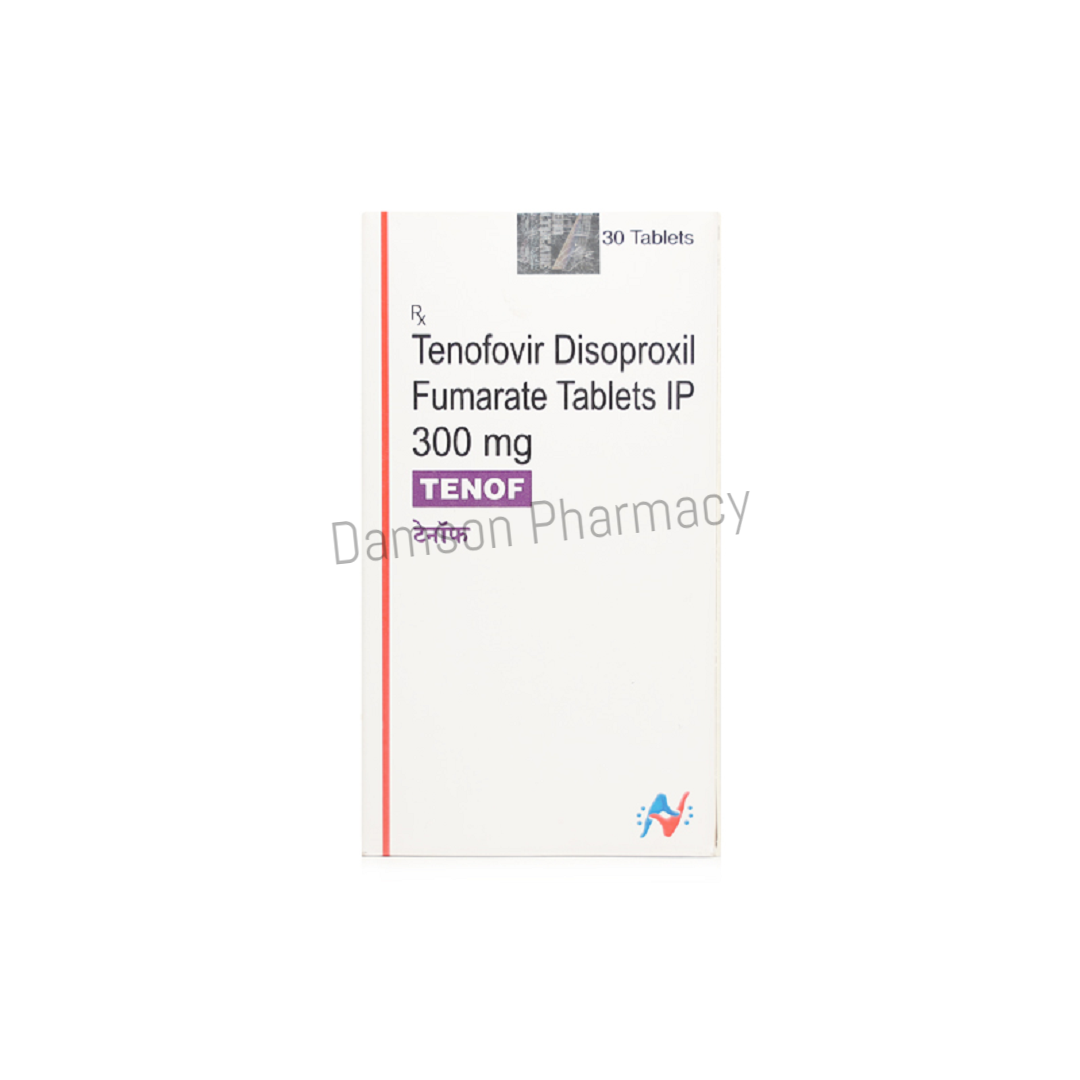
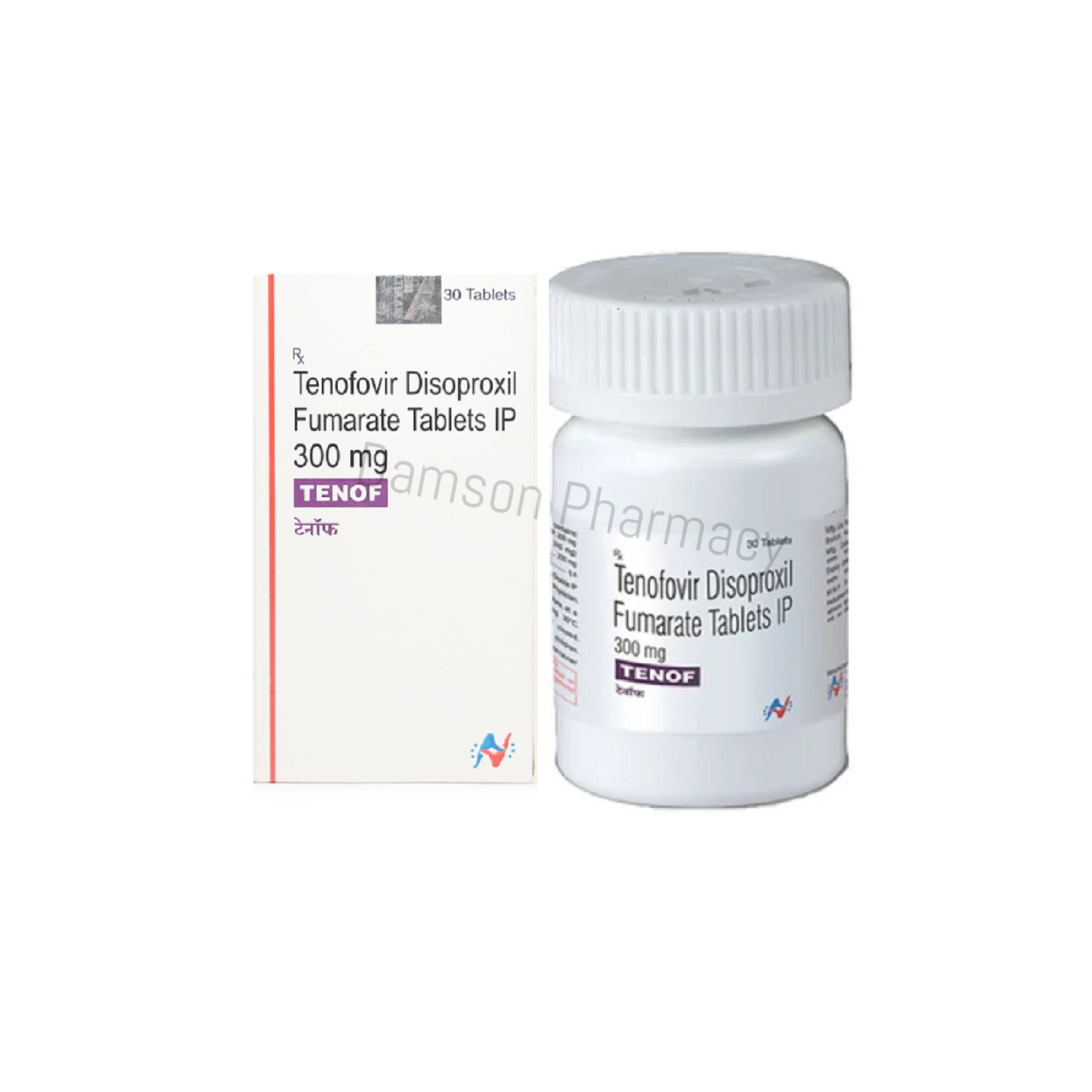
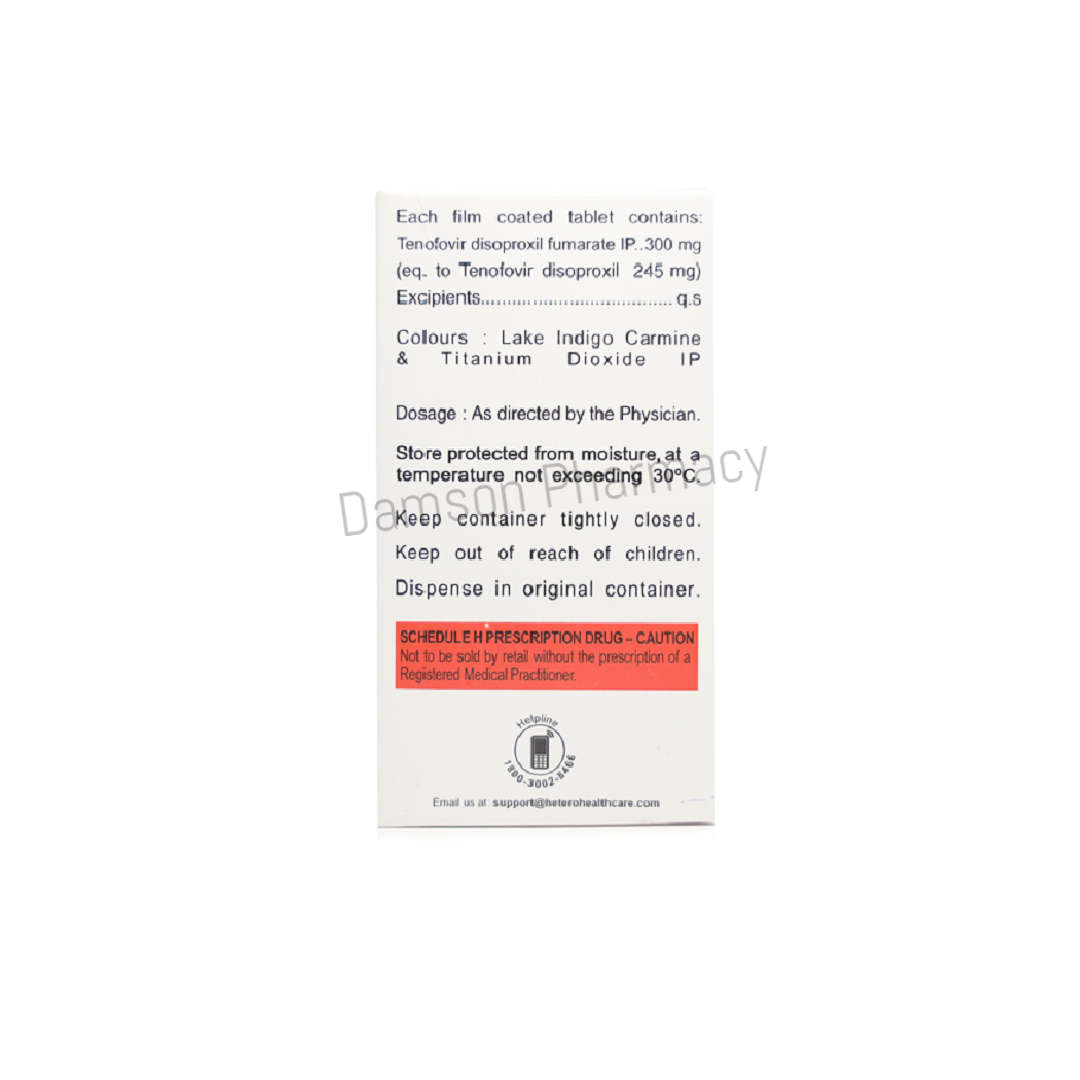

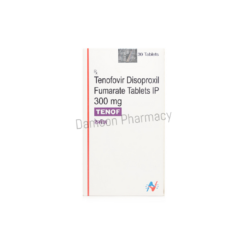
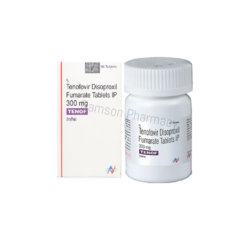
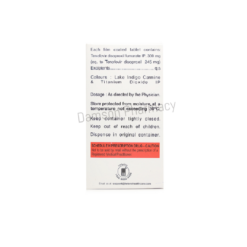



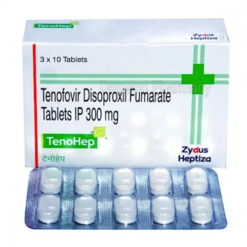
Reviews
There are no reviews yet.